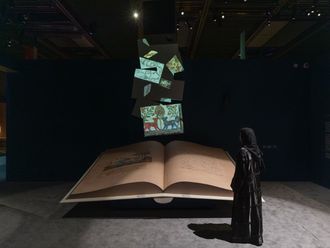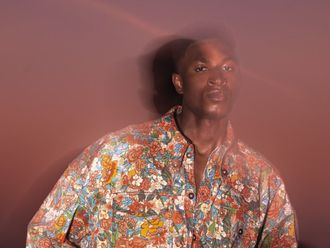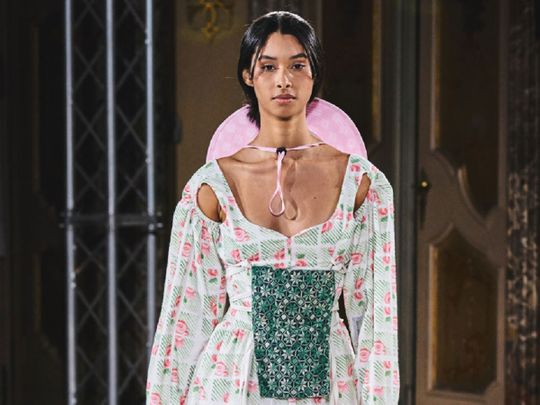
The fashion industry, which represents one of the most important components of the global economy, is rushing, like other industries, to go green to safeguard the planet from environmental havoc. As the industry continues to boom, increased attention has shed light on the multitude of negative impacts that the industry is responsible for. Fashion makes up 10% of humanity’s carbon emissions, it pollutes rivers and streams and dries up water sources.
One way is by going “sustainable” otherwise known as “eco-fashion,” a movement and process fostering change to the way fashion products and garments are made to push the fashion industry towards greater social justice and ecological integrity. According to The United Nations Economic Commission for Europe (UNECE, 2018), 85% of all textiles are thrown away each year. Moreover, washing some types of clothes sends significant amount of microplastics into the ocean.
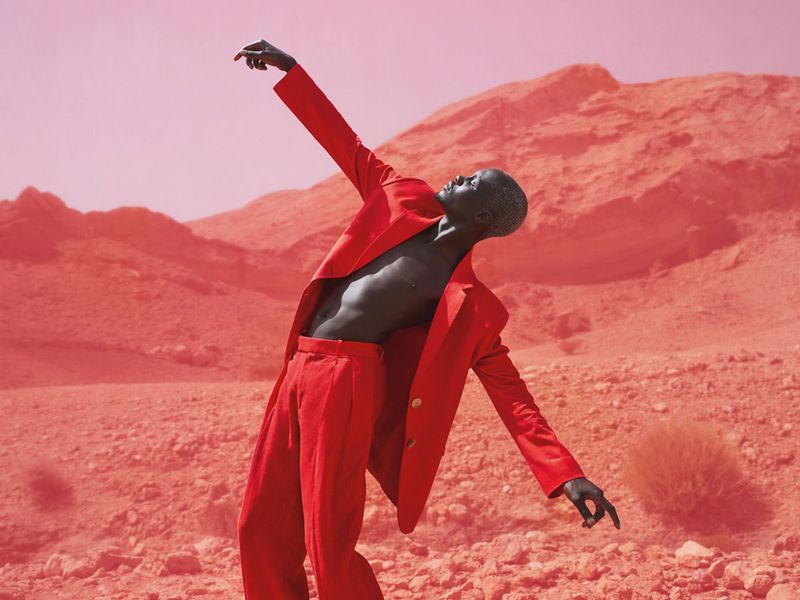
As the fashion world pushes sustainability, taking a leap forth like so many other industries on the globe to save the environment from impending disasters due to climate change, many designers, also in the Arab world, are taking the additional step forward to recycle and upcycle textiles, materials, and vintage clothing in their new collections as well as follow practices that support the ethical creation and pay of factory workers and fashion producers.
We look at several fashion designers from the Arab world and how they are creating sustainable fashion and applying such practices into special collections. One is Reemami, the designer behind contemporary UAE-based womenswear with a focus on sustainable fashion and a style that fuses athleisure with elegance, contemporary cuts and Arab inspiration — particularly from Palestine where Reema is from. “Reemami is sustainable is so many ways — in the way that I cut my patterns, I make sure that there is zero waste, and whatever extra fabric that we reuse it and upcycle it to create other things, such as shirts that I have created from waste from extra fabric as well as headbands and masks,” she explains. “I also try and recycle older collections and older styles and make sure that the collections are forever and that the quality is high, not fast fashion brand material quality. I also try and encourage my customers to re-wear the older collections and if there is anything wrong with the item to mend it.”
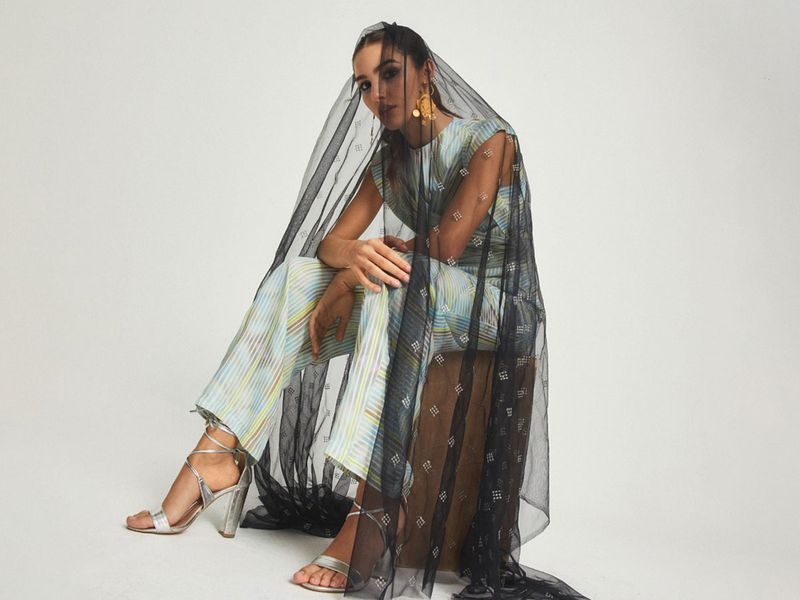
Al-Banna says how she has been trying to use organic cotton, certified and re- cycled fabrics that are also certified from places that are using renewable energy and less waste and are friendly for the environment. The brand also tries to make packaging that is sustainable. “We have been trying to work with artisans locally so that we encourage the system in the UAE and we create a bigger community and pave the way for young designers to come and find production houses and factories here that are willing to work with designers that are not producing big bulk quantities,” she adds.
Dubai-based Algerian fashion designer Faiza Bougessa, known for her sophisticated silhouettes with their monochrome hues and sleek cuts, announced in 2020 that she would dedicate herself to the creation of sustainable fashion. In her open letter, published on their Instagram account, she wrote: “Being part of an industry that is one of the most polluting in the world, I feel it is my responsibility to take that mission a step further by starting a new chapter and shift the way we run our business and produce our collections towards a more eco-conscious and sustainable approach.” Her Spring/Summer 2022 collection is dedicated to expressing oneself through nature and art. It is a carefree collection, aimed to nourish creativity and inspired by artistic performance.
Also in the UAE, NIILI, another home-grown luxury eco-conscious womenswear brand, led by Khaled Al Zaabi and Paula Quetglas Llop, rooted in Emirati heritage and which takes its inspiration from nature, strives to contribute responsibly to the local community and the environment through delivering fashion and luxury products based on ethical sourcing and responsible production. Its latest collection focuses on mother- of-pearl prints, subtle falcon print pieces, geometric patterns and handcrafted crochet.
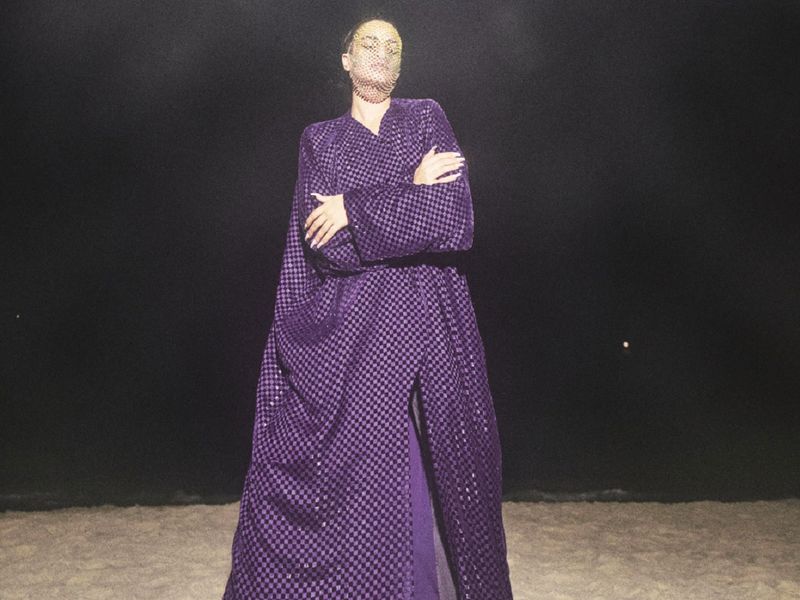
Elsewhere in the Arab world, emerging fashion designers are also dedicating themselves to sustainable fashion. Qatari ready-to-wear brand 1309 is grounded in the idea of the “contemporary bohemian” aesthetic. The brand was established in 2015 by Founder and Creative Director of the brand, Ghada Al Subaey. It focuses on clean silhouettes with bold colour, artful prints accentuated with embellishment and details and importantly, is dedicated to creating in a sustainable way. 1309 includes sustainable materials both in garment production and packaging. Additionally, 70% of the fabric used in 1309 collections is vegan, including vegan linen and vegan silk (also known as cupro, which is a natural by-product from the cotton industry). Like Al-Banna, Al Subaey creates packaging that is biodegradable, compostable, and environmentally friendly.
“My goal when I founded 1309 was to create pieces that make women feel comfortable while being expressive of their personal style,” said Al Subaey. “Through my work, I’m aiming to change the perception of abayas and celebrate traditional-wear with- out compromising on style. We do this by playing with fabrics, cuts and colours.” The latest collection is also ideal for Ramadan, with Abayas that can be worn during the day but also for festive iftars and suhoors. As Al Subaey says, sustainability is key to the brand: “At 1309, we work in an environmentally conscious way, sourcing sustainable vegan fabric as well as biodegradable and recyclable packaging. This approach has strengthened the relationship with our clients who are more loyal and appreciative of our ethics and sustainable practices, because it aligns with their own personal values, too.”




